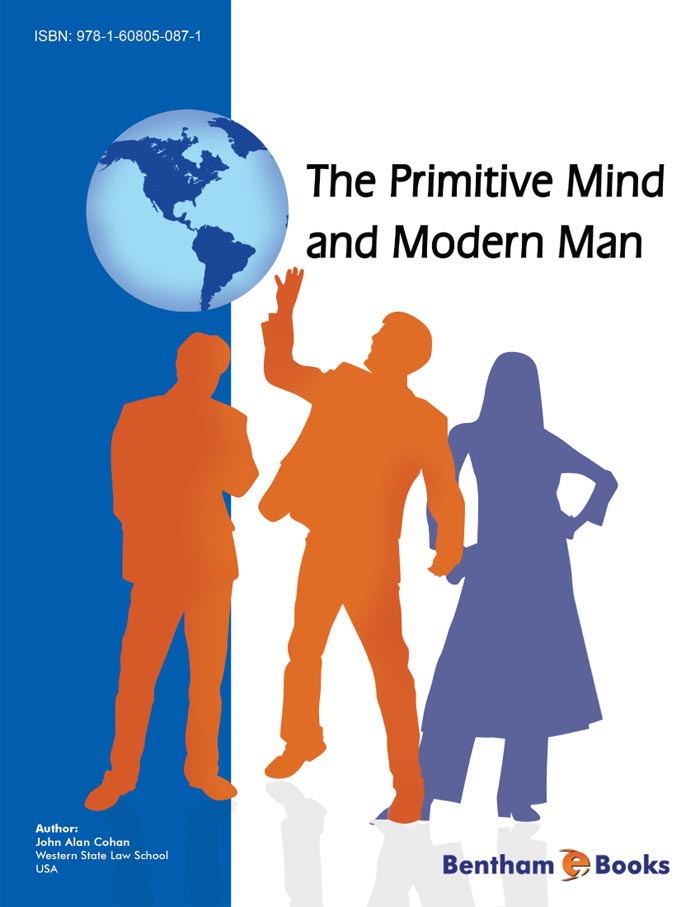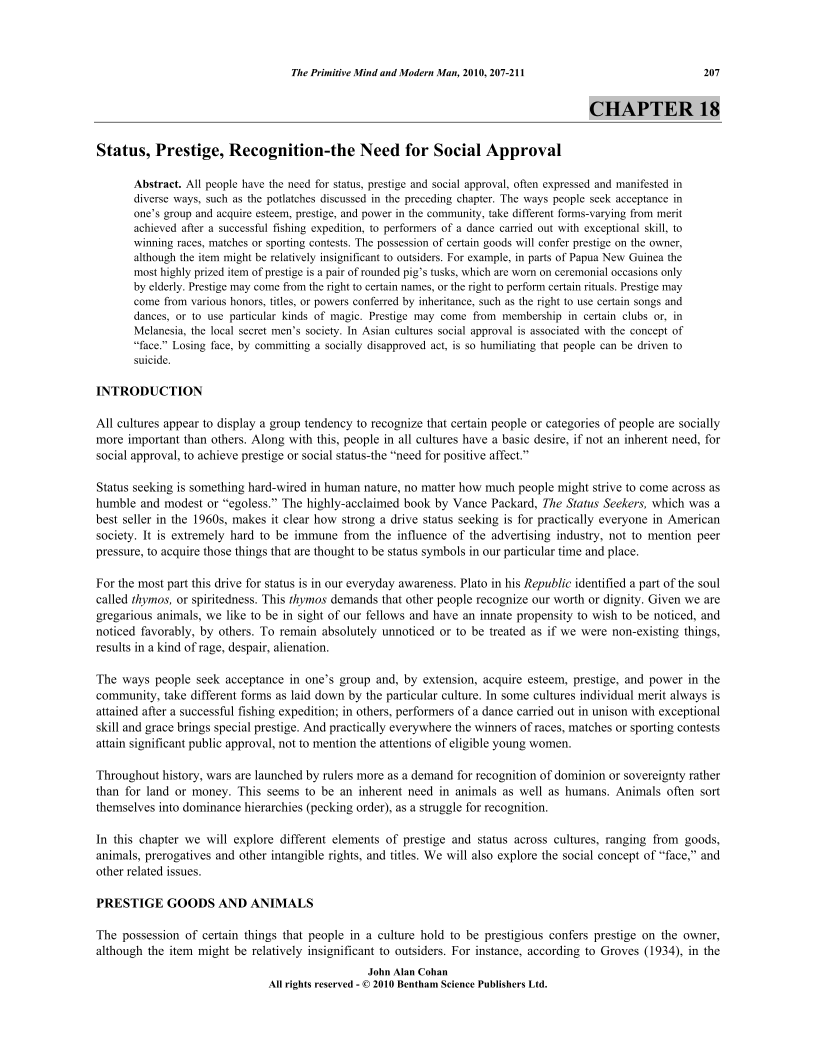Status, Prestige, Recognition-the Need for Social Approval

- By John Alan Cohan
- Source: The Primitive Mind and Modern Man , pp 207-211
- Publication Date: March 2012
- Language: English
Status, Prestige, Recognition-the Need for Social Approval, Page 1 of 1
< Previous page | Next page > /docserver/preview/fulltext/9781608050871/chapter-18-1.gif
All people have the need for status, prestige and social approval, often expressed and manifested in diverse ways, such as the potlatches discussed in the preceding chapter. The ways people seek acceptance in ones group and acquire esteem, prestige, and power in the community, take different forms-varying from merit achieved after a successful fishing expedition, to performers of a dance carried out with exceptional skill, to winning races, matches or sporting contests. The possession of certain goods will confer prestige on the owner, although the item might be relatively insignificant to outsiders. For example, in parts of Papua New Guinea the most highly prized item of prestige is a pair of rounded pigs tusks, which are worn on ceremonial occasions only by elderly. Prestige may come from the right to certain names, or the right to perform certain rituals. Prestige may come from various honors, titles, or powers conferred by inheritance, such as the right to use certain songs and dances, or to use particular kinds of magic. Prestige may come from membership in certain clubs or, in Melanesia, the local secret mens society. In Asian cultures social approval is associated with the concept of "face." Losing face, by committing a socially disapproved act, is so humiliating that people can be driven to suicide.
-
From This Site
/content/books/9781608050871.chapter-18dcterms_subject,pub_keyword-contentType:Journal -contentType:Figure -contentType:Table -contentType:SupplementaryData105

